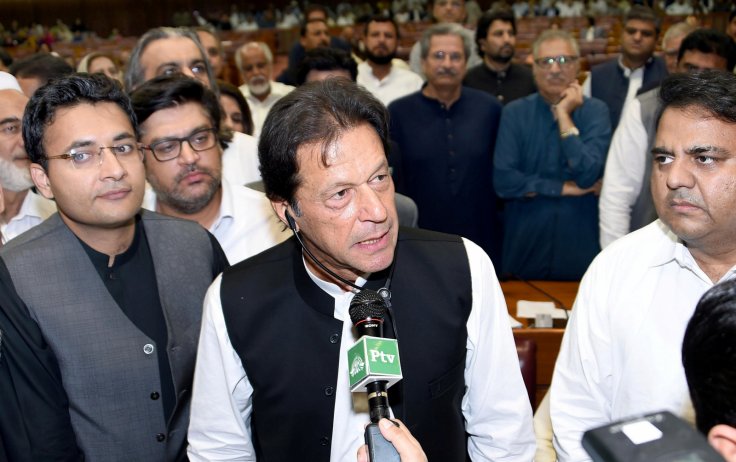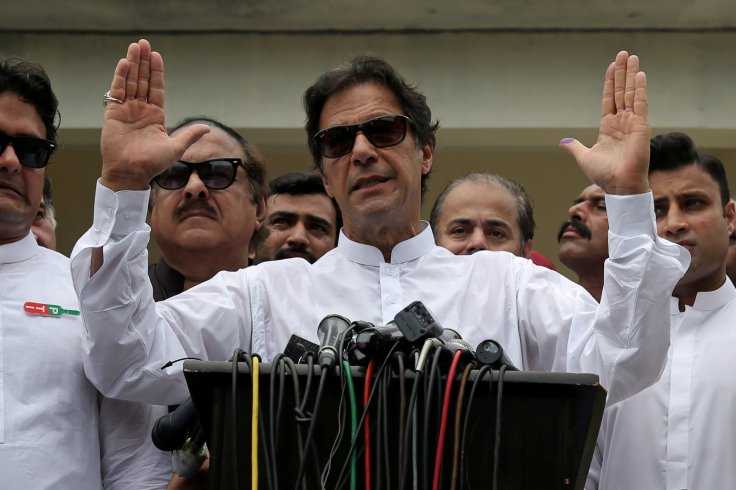Pakistan Prime Minister Imran Khan could likely resign on Wednesday as he is set to lose the majority in Parliament. Pakistan Tehreek-e-Insaf's (PTI) former ally Muttahida Qaumi Movement-Pakistan (MQMP) struck a deal with the opposition parties on Tuesday night, making Khan's government untenable.
Confirming the deal, Bilawal Bhutto Zardari, Pakistan People's Party Chairman, said in a tweet that the united opposition and MQMP have reached an agreement.

"Confirming the agreement between the MQM-P and the opposition, Pakistan People's Party Chairman Bilawal Bhutto Zardari in a tweet early on Wednesday said, The united opposition and MQM have reached an agreement. Rabta committee MQM & PPP CEC will ratify the said agreement. We will then share details with the media in a press conference tomorrow IA. Congratulations Pakistan," said Zardari.
A spokesperson for the MQM-P has also confirmed the deal and informed that an agreement was drafted with the opposition and details of the deal shall be revealed on Wednesday evening.
MQM-P's split from PTI was triggered after Imran Khan took resignation from Punjab Chief Minister Usman Buzdar and offered his position to Chaudhry Pervaiz Elahi, a leader of Pakistan Muslim League-Q which recently sided with the PTI. The move aimed to garner support from the PML-Q at the National Assembly over the no-confidence motion tabled against Imran Khan.
In the National Assembly, the opposition is leading the numbers game with 175 members while the government has 164 members. The PTI has 155 members, PMLQ 4, GDA 3, BAP 1 (Zubaida Jalal) and AML 1. While the opposition would have 175 members on its side, including PMLN's 84, PPP 56, MQMP 7, MMA 14 (minus JI's Maulana Chitrali), Independent 3 (minus Ali Wazir), PMLQ (Tariq Bashir Cheema) 1, ANP 1, BNPM 4, BAP 4 and JWP 1, according to The News International.
Now, as the joint opposition parties have received support from the MQM-P, they have now more than the required numbers to remove Imran Khan from his prime ministership with the no-confidence vote. Earlier, it was believed that the opposition had the support of nearly two dozen PTI dissidents to remove Imran Khan from power.
MQM-P and the opposition have reached written agreements at the provincial and the federal level, assuring that all demands of the MQM-P shall be fulfilled.
MQM-P was in talks with the incumbent and the opposition both for its demand and maintained that it would side with whoever comes with a better response.

Currently, in the National Assembly, the joint alliance has 177 members with the support of MQM-P and Imran Khan's PTI has the support of 164 Members of the National Assembly. However, Khan had alleged that attempts were being made with the help o foreign funds to topple his government and his party members had claimed that he will represent a letter to the Chief Justice of Pakistan to back his claims.
No Confidence motion will be discussed in the assembly on Thursday.
Imran Khan's prime ministership in Pakistan has been marred with challenges and he has been struggling to uplift the country's economy as it faces massive inflation and trade deficit. The country is already debt-ridden but it still seeking debts from China and International Monetary Fund for economic recovery.
In early February, the Imran Khan government hiked taxes on widespread products and services to receive funds from IMF and it faced massive criticism from the opposition and the people of Pakistan.
Imran Khan was battling domestic unrest due to inflation and he was also ignored by the West despite Pakistan's major role in the US-Taliban Peace Deal as he still waiting for a call from US President Joe Biden since he assumed power at the White House.
Pakistan in the last few months witnessed massive protests over massive inflation, terror attacks in January and February had also surged and targeted Lahore areas whereas attacks earlier were limited to Balochistan province only.
Read more









